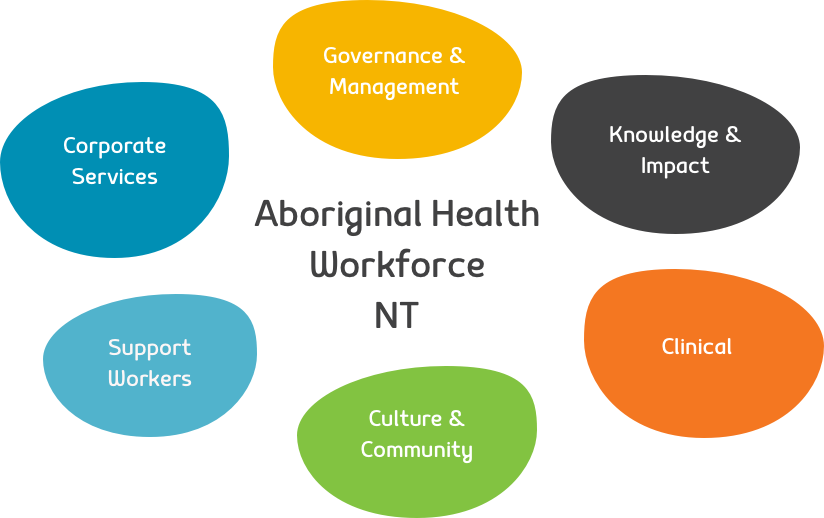Working in Aboriginal health in the NT
Partners
Aboriginal Medical Services Alliance of the Northern Territory (AMSANT)
Primary Health Network, Northern Territory (PHNNT)
Challenge
Developing a local Aboriginal workforce in health is limited by the lack of clearly defined roles or career pathways for important non-clinical roles, particularly in jobs that require cultural and community expertise. A career mapping resource was needed with structured, integrated and comprehensive career roles and pathways.
Approach
From across the NT, 35 stakeholders from 17 health organisations were consulted to understand existing and emerging roles and how they are supported and developed. Over 1,000 job roles defined independently by different organisations had substantial overlap and duplication that could be narrowed to a few clearly defined roles. Consultations identified elements of successful training and development programs, issues or barriers the employer and employee face in supporting and developing a non-clinical workforce; and suggestions for future opportunities to create and sustain a stable non-clinical workforce.
An interactive online resource was created to define career roles and pathways as a resource to inform and support the development of an Aboriginal health non-clinical workforce.
Impact Pathways
The resource has been used by NTPHN and AMSANT to inform programs around workforce development.
This project has also formed the basis of a research study on Aboriginal Workforce Development led by AMSANT and supported by Central Australian Academic Health Sciences Network (CAAHSN) from 2024-2027.
Career Pathways Map - online resource
Key Findings
A lack of context-appropriate training is available for Certificate levels and non-accredited training
Emerging roles poorly defined but fundamental to the sector
There are few relevant and accessible RTO options in the NT
Adequate support and resources are not available to facilitate career development
Recommendations for Workforce Development
The following recommendations aim to overcoming existing challenges to strengthen the Aboriginal non-clinical health workforce.
Create and promote resources to define career roles and pathways
Create support roles dedicated to strengthening career development pathways
Create an NT Aboriginal Employment Register to support individual career pathways, and to develop a deeper understanding of the sectors needs and challenges.
Key Challenges in Accredited Training in the NT
The following challenges must be overcome to provide Aboriginal people the capacity and support to develop career pathways in non-clinical roles in the NT.
Few RTOs are based in the NT
Courses require base level of language, literacy and numeracy skills
Significant sector support is required to access existing accredited courses
Recommendations for Accredited Training
The following recommendations provide potential solutions to the challenges outlined above.
Build capacity and sustainability of RTOs based in the NT to deliver remote education
Create entry level accredited courses based on the foundational skills required to work in the Aboriginal health sector in the NT
Training Options and Resources
An overview and links to accredited and non-accredited training options in the NT, Registered Training Organisations (RTOs), Leadership Programs, Traineeships, Cadetships, Apprenticeships and Language, Literacy and Numeracy (LLN) pre-training assessment tools and training tools.


